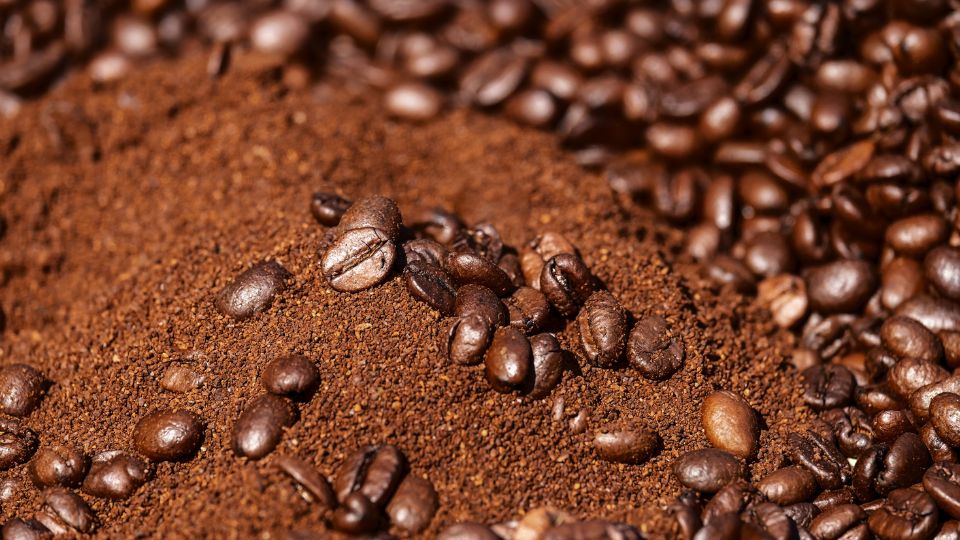
The consumption of coffee reaches an impressive 15 million tonnes, resulting in the generation of hundreds of thousands of tonnes of coffee grounds waste each year.
Sadly, the majority of these used grounds end up in landfills, contributing to the release of greenhouse gases such as methane, which is significantly more potent than carbon dioxide.
Why shouldn’t coffee grounds waste be sent to landfill?
- Environmental damage: When coffee grounds end up in landfills, they decompose and release methane gas, which is a real troublemaker for the environment.
- Waste not, want not: Coffee grounds are actually pretty useful. They’re loaded with nutrients like nitrogen, potassium, and phosphorus which is great for composting.
- Circular waste management: Sending coffee grounds to the landfill doesn’t jive with sustainable waste management practices. We should be thinking smarter and treating coffee grounds as a resource instead of rubbish.

So, let’s keep coffee grounds out of the landfill and give them a second chance at being useful. It’s good for the environment, saves resources, and keeps us on the right track towards a more sustainable future.
How can businesses store and dispose of coffee grounds
Businesses can store and dispose of coffee grounds in several ways, depending on their specific needs and resources.
Here are a few common methods:
Composting
Coffee grounds are a valuable source of organic matter and nutrients, making them ideal for composting. Businesses can set up a composting system on-site or collaborate with local composting facilities.
Store coffee grounds in a designated container and regularly transfer them to the composting area. Mixed with other compostable materials like food scraps and yard waste, coffee grounds can help create nutrient-rich compost for gardens and landscaping.
Vermicomposting
Vermicomposting involves using worms to break down organic waste, including coffee grounds.
Some businesses may opt to set up a worm bin or vermicomposting system on their premises.
The worms consume the coffee grounds along with other organic matter, producing nutrient-rich castings (worm waste) that can be used as fertiliser.
Make sure to follow proper vermicomposting guidelines and maintain the appropriate conditions for the worms.
Donation or reuse
If feasible, businesses can explore options to donate or repurpose coffee grounds.
Local community gardens, farmers, or individuals who practice gardening might be interested in collecting coffee grounds for their plants.
Some businesses may even partner with local organisations that can repurpose coffee grounds for alternative uses like making natural dyes, beauty products, or even animal feed.
Industrial composting services
In areas where commercial composting facilities are available, businesses can contract with these services to dispose of their coffee grounds. These facilities have the infrastructure to handle large volumes of organic waste, including coffee grounds, and process them efficiently on an industrial scale.
Waste management services
If other options are not feasible or available, coffee grounds can be disposed of as food waste.
However, it’s important to check local waste management regulations and guidelines for proper food waste disposal methods.
Remember, while storing, ensure they are kept in a dry and sealed container to prevent odours and maintain their quality until the coffee grounds disposal or repurposing.
Additionally, always prioritise sustainable and environmentally friendly coffee grounds disposal methods to minimise waste and promote responsible business practices.
One creative company in Germany, Kaffeeform, is even turning coffee grounds into coffee cups. How’s that for a circular product!

How can I recycle coffee grounds at home?
Gardening fertiliser
Coffee grounds are rich in nitrogen, which makes them an excellent fertiliser for plants. You can sprinkle coffee grounds directly around acid-loving plants like roses, azaleas, rhododendrons, or blueberries to provide them with a nutrient boost.
Mix the coffee grounds into the soil or add them to your compost pile to enhance its fertility.
Pest deterrent
Coffee grounds disposal tricks can help repel certain pests in your garden.
Spread a thin layer of coffee grounds around the base of plants to deter slugs, snails, and ants. These critters dislike the texture and smell of coffee grounds, making them less likely to approach your plants.
Exfoliating scrub
Coffee grounds can be used as a natural exfoliating scrub for your skin.
Mix used coffee grounds with a small amount of coconut oil or your favourite natural oil to create a gentle scrub. Use it in the shower to exfoliate your body, leaving your skin feeling smooth and refreshed.
Odour neutraliser
Coffee grounds have natural odour-absorbing properties, making them useful for neutralising unpleasant smells in your home.
Place dried coffee grounds in an open container or tie them in a porous cloth bag and place them in areas with strong odours, such as the refrigerator, pantry, or bathroom. The coffee grounds can help absorb and mask the smells over time.
Cleaning agent
Coffee grounds disposal can be utilised as an abrasive cleaning agent for certain tasks. Use them to scrub and remove stubborn stains from dishes, pans, or cutting boards. Their texture helps to scrub away grime without scratching surfaces.
However, be cautious when using coffee grounds on delicate or porous materials to avoid potential damage.
Remember to use coffee grounds in moderation, as excessive amounts can alter the PH level of the soil or lead to an imbalance in your compost.
Experiment with these recycling ideas to find the methods that work best for you and your specific needs.








